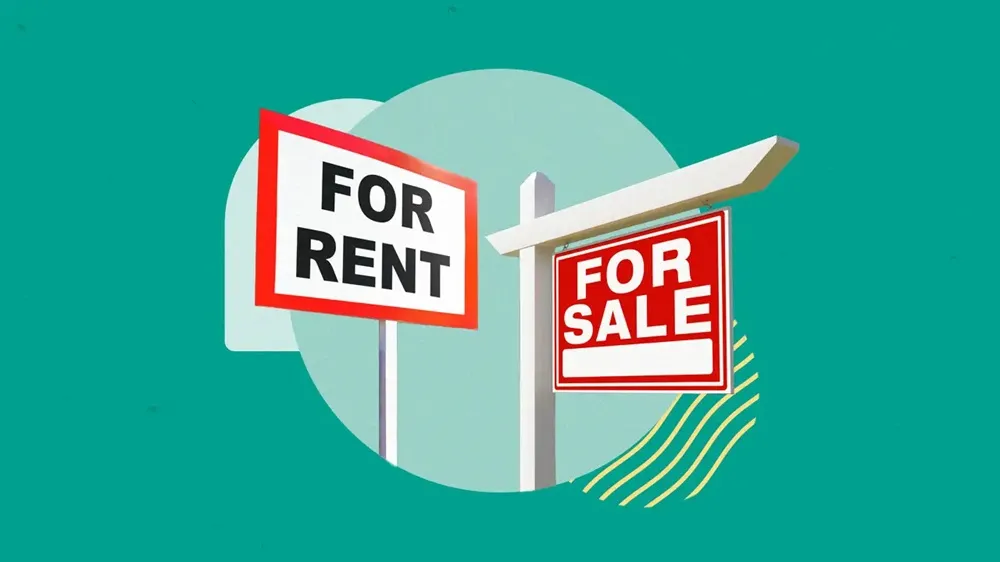The Pros and Cons of Renting vs. Buying a Home

The choice to lease or purchase a domestic is one of the most noteworthy choices individuals confront in their lives. It can shape your budgetary future, way of life, and indeed your sense of security. Both leasing and buying have unmistakable preferences and impediments. To make the best choice for yourself, it’s basic to consider the aces and cons of each. Understanding these can offer assistance direct your decision-making handle as you weigh whether leasing or buying adjusts with your current and future goals.
The Aces of Leasing a Home
Renting gives a few clear focal points, particularly for people who esteem adaptability and effortlessness in their living courses of action. One of the greatest aces of leasing a domestic is adaptability. Tenants can regularly sign short-term leases, which implies they are not tied down to one area for an expanded period. This can be perfect for individuals who move as often as possible due to work, way of life inclinations, or other reasons. Leasing permits for a simple migration handle without the bother of offering a property, which can be time-consuming and expensive.
Another master of leasing is maintenance-free living. In most rental understandings, proprietors are capable of property upkeep, counting repairs, garden care, and common upkeep. This spares leaseholders from the bother and cost of managing with issues like a broken machine or cracked roof. Leaseholders can basically inform their proprietor, who is more often than not committed to take care of these issues expeditiously. For individuals who do not need to spend their ends of the week settling issues around the house, this can be a major benefit.
Renting is ordinarily cheaper than buying. Whereas tenants are required to pay a security store and to begin with a month’s lease, the costs related with Buying a Home are much higher. Buyers must spare for a down installment, pay closing costs, and possibly pay for domestic assessments and examinations. For those who may not have the prompt monetary assets or who don’t need to commit an expansive entirety of cash forthright, leasing offers a reasonable alternative.
Moreover, leasing gives consistency in terms of month to month installments. Lease is ordinarily settled for the term of the rent, making budgeting less demanding. Homeownership, in any case, can come with fluctuating costs like property charges, homeowners’ protections, and upkeep expenses, which are harder to predict.
The Cons of Leasing a Home
While leasing has its benefits, it too has its disadvantages. One of the greatest cons of leasing is the need for value building. Lease installments go straightforwardly to the proprietor, which implies leaseholders do not construct proprietorship in the property. Not at all like Buying a Home, where contract installments contribute to owning a bigger parcel of the domestic over time, lease does not contribute to any long-term speculation. As a result, tenants do not benefit from any appreciation in property value.
Another con is the need for control over the property. Tenants are frequently restricted in what they can do to personalize or make strides in their living space. Most leases forbid major changes, like portray dividers or making noteworthy remodels. For individuals who appreciate personalizing their domestic or who are looking to contribute in a space they can call their claim, this need of independence can feel restrictive.
Renting moreover implies confronting the potential for lease increments. Whereas you may bolt in a lease cost for a certain period, proprietors have the right to raise the lease when the rent is up for recharging. In a few cases, this can make it troublesome for tenants to remain in the same put, particularly if the lease increment is considerable. This money related precariousness can be a concern for individuals who are attempting to keep up a reliable budget.
Lastly, tenants confront the plausibility of ousting or non-renewal of rent understandings. In spite of the fact that inhabitant assurance laws exist, there’s still a chance that a proprietor might choose to offer the property or select not to recharge the rent. For tenants looking for long-term steadiness, this need of perpetual quality can be an awkward and dubious situation.
The Aces of Buying a Home
One of the most critical focal points of Buying a Home is the opportunity to construct value. With each contract installment, you are working toward owning more of the property. Over time, as the esteem of the property possibly increments and the contract central diminishes, you construct riches. Not at all like leasing, where you don’t pick up possession of the property, Buying a Home can be an effective money related investment.
Homeownership too gives soundness and lastingness. Once you claim a domestic, you are free from the concerns of lease increments, rent reestablishments, or the plausibility of removal. Homeownership gives people and families a sense of security since they can remain in their homes for as long as they need, without stressing almost the vulnerability that leasing regularly brings.
Another master of buying is the flexibility to personalize your space. Property holders can remodel, paint, and adjust their property as they see fit. Whether it’s making a dream kitchen, including a terrace deck, or introducing modern flooring, the capacity to make your home reflect your tastes is a critical advantage. For those who appreciate domestic change ventures or need a space that matches their vision, Buying a Home offers unmatched flexibility.
Finally, there are potential assessed benefits to Buying a Home. Contract intrigued and property charges are frequently tax-deductible, which can spare mortgage holders a critical sum of cash. These money related motivations can make owning a home more reasonable in the long run.
The Cons of Buying a Home
Despite its numerous benefits, Buying a Home comes with its challenges. One of the greatest cons is the tall forthright costs. Buyers must spare for a down installment, which can be 20% or more of the home’s esteem, as well as pay for closing costs, assessments, and other expenses. For first-time buyers, this can be a monetary jump that is troublesome to overcome.
Homeownership too comes with a long-term commitment. Once you buy a domestic, you are tied to that property for an impressive sum of time. Offering a home can be time-consuming and exorbitant, and if you require to move, it can take months or indeed a long time to offer the property. For those who need adaptability or who move habitually, this can be a noteworthy disadvantage.
Additionally, mortgage holders are mindful of support and repairs. This implies that when something breaks, whether it’s a cracked roof or a breaking dawn dish conditioning unit, you’re the one who has to settle it or pay for the repairs. Not at all like leasing, where upkeep is ordinarily the landlord’s duty, property holders must budget for these costs, which can be unpredictable.
Conclusion
The choice to lease or purchase a domestic depends on your budgetary circumstance, way of life inclinations, and long-term objectives. Leasing offers adaptability, lower forthright costs, and less duty, whereas buying gives soundness, the potential for value development, and more control over your living space. By carefully considering the aces and cons of each choice, you can make a more educated choice almost which way is right for you.







